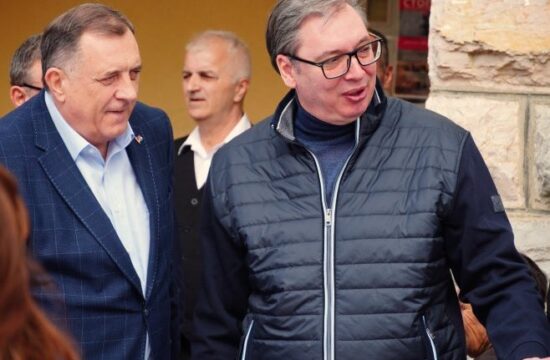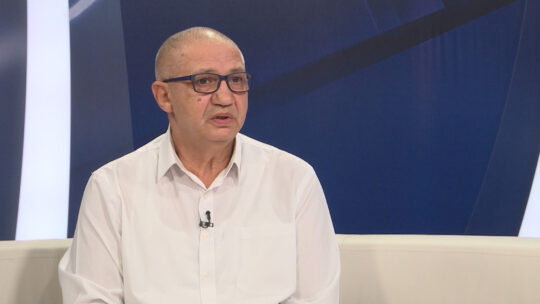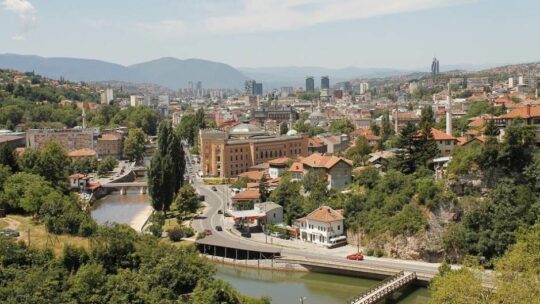Dozens of former concentration camp prisoners gathered on Wednesday at the Memorial Center in Potočari, near Srebrenica, to await the sentencing of Serbian Radical Party leader, Vojislav Seselj, at the war-crimes tribunal in The Hague.
Prisoners kept by Bosnian Serb forces in camps in Zepce, Zvornik, Bratunac and Srebrenica picked this site to gather as it symbolizes the 1995 massacre of more than 8.000 Bosniaks.
In a second-instance ruling, judges of the International War Crimes Tribunal for the former Yugoslavia sentenced Seselj to 10 years in prison for expulsion, deportation and other crimes against humanity he had committed during the wars in former Yugoslavia. He was first acquitted in 2016, but the prosecution appealed the ruling.
Amir Efendic, former concentration camp prisoner from Zvornik – one of the places mentioned in Šešelj’s indictment – said he spent 13 months in that camp and that he remembers Šešelj giving speeches in the area of Zvornik in 1991.
“Before the war began, he held speeches after which there would be physical incidents. Together with my family and friends, I was taken away from home so that someone else could move into our property,” he said. “Then I was taken to a concentration camp, where I endured various types of torture and beatings. A cross was carved into my forehead.”
Efendić also described how some prisoners had their heads, genitals and ears chopped off, while his brother lost his fingers this way.
“These were the worst days of my life,” he added.
The Mothers of Srebrenica, an organization of women who lost their sons, husbands and other male family members during the 1995 genocide in this eastern Bosnian town, said they were only partially satisfied with the 10 year prison sentence Seselj got.
Seselj repeatedly challenged the number of victims of the Srebrenica massacre for years, claiming it was much lower than what the International Court for Former Yugoslavia (ICTY) said.
“They should bring him over here to see it is eight thousand (victims), not one thousand, as he claims,” Nura Mustafic said.




